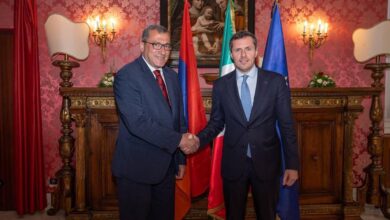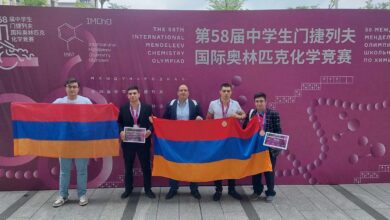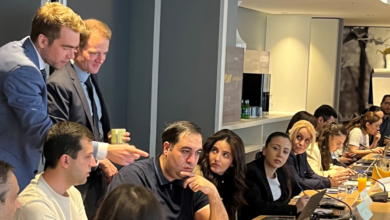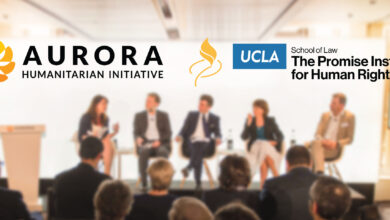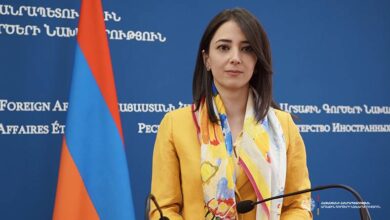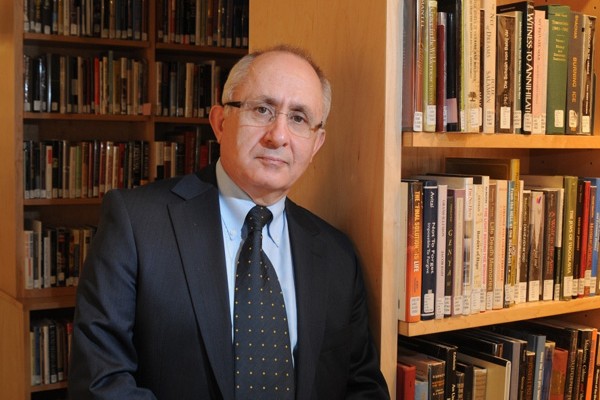
Speaking out about historical crimes, especially genocide, is the responsibility of all humanity, Turkish historian Taner Akcam, chair in Armenian Genocide Studies at the Strassler Center for Holocaust and Genocide Studies at Clark University, said in an address to Swedish parliament on Tuesday, Ahval News reports.
This is not an issue for Armenians and Turks or Jews and Germans, alone, he said.
The full text of the address is provided below:
The central issues that Turks must confront, is our inability or refusal to acknowledge the violence we have perpetrated, especially, the massacres and genocide carried out against our fellow Christian citizens – the Armenians, Assyrians and Greeks.
While mass violence is not unique to Turkey, it is a major feature of the turmoil that characterizes the Middle East.
It is difficult to determine the beginning- and end-dates for historical processes; however, between the 1878 Berlin Congress and the founding of the Turkish Republic in 1923, the Ottoman-Turkish lands experienced waves of upheaval, an earthquake comprised of a series of massacres that constitute a genocidal process. The 1894-6 massacres of Armenians and Assyrians; the 1904 Sasun and 1908 Adana massacres of Armenians; the 1913-4 ethnic cleansing and massacres of Greeks; the 1915-18 genocide of Armenians and Assyrians; and the 1921-22 Pontus genocide represent the most significant tremors of this earthquake.
The 45-year long (1878-1923) earthquake, which can be characterized as the Ottoman genocide of Christians, continued during the Republican era at various intervals. The Jewish affair in 1934 in Trace; the 1937-38 Dersim genocide; the 1942 Property Tax; the pogrom of 6-7 September 1955; the slaughter of intellectual youth during 1960, 71 and 80 military coups; and the never ending suppressions of the Kurds, including their systematic torture and killings in the 1990s and 2015 represent some examples of this continuation.
If, today, Turkey struggles to establish a regime that respects human rights and continues to face significant hurdles in its democratization, it is due to the refusal to confront and face the crimes committed in the past. Moreover, the challenges are not limited to Turkey’s internal affairs, but also extend to the wider region. The military operations in Syria and the war with the Kurds are also manifestations of this inability to face the past.
This state of affairs raises a central question: why must we face our history? Why must we memorialize and remember past crimes? Allow me to present five fundamental and interconnected reasons:
- The first important reason why we should remember and commemorate past atrocities is because we have to remember the victims, pay our respects to their memory and Re-humanize them. Dehumanization is essential to the perpetration of mass atrocities. The most effective way to inspire perpetrators to kill is to make their victims inhuman. This is how individuals overcome their normal human revulsion toward murder. Nazis classified the Jews as bacteria or microbe/germs; in Rwanda, the Hutus called the Tutsis cockroaches. The Ottoman Turkish rulers described Armenians as a tumour in the Turkish body that had to be excised. By depriving the victim group of its humanity, perpetrators pave the way for mass-atrocities. Commemoration is, if nothing else, an act of protest against this repulsive phenomenon. Re-humanizing the victims by honouring them and restoring their dignity is one of the most important steps in denouncing the perpetrator.
- The second reason for remembrance is that it creates the foundations for co-existence. Communities that have experienced a painful past filled with violent acts, can only reconcile and live together peacefully if they “talk” about this common past with each other. Failing to do so, they will continue to regard each other with doubt and suspicion and ultimately get crushed under the burdens of the past. If Turks cannot engage in an honest reckoning of their crimes, enter into serious dialogue with Armenians, Greeks and Assyrians, and listen to the deeply painful histories of these communities, the victim groups will never feel any measure of trust for Turks. The only way for Turks to achieve peaceful coexistence at home, and with their neighbours, is for the Turkish government and its people (including Turks, Kurds, Alevites, Sunnis, etc.) to acknowledge historic wrongs honestly and to accept responsibility for their actions. Without genuinely confronting and accepting this painful history, a common future will never be constructed.
- The third reason why we must face our history is as follows: We remember the past and commemorate mass atrocities because this is a basic prerequisite for a democratic society. In order to establish a democracy that respects human rights, it is essential to first confront human rights violations. Failure to do so, and impunity for past crimes, inhibit a nation’s commitment to respect present day human rights. How you view and regard your past will also determine how you construct your future… Recognition of historic injustices is essential to establishing a democratic environment that values human rights.
- The fourth important reason for remembering and honouring the past is to raise our voices to say, “Never again!” In order to avoid mass atrocities, we must remember! But remembering, alone, may not be enough to prevent the repetition of past injustices; however, it is an important pre-condition. Denying historic wrongs leaves the door wide open for the potential risk of repeating the same crimes, the same mistakes over again. Denying massacres and crimes, Turkey sends the message that it would perpetrate the same crimes again, if threatened. For this reason, it is not an exaggeration to claim that Turkey represents a potential threat to the entire region.
- The last important reason to commemorate past atrocities is to fight denial and overcome obstructions in the quest for truth and justice. This core principle is crucial, for it effectively demonstrates that acknowledging a historic crime is not limited to remembering an event of the past, but that it constitutes a prerequisite for the consolidation of peace, security and stability today.


